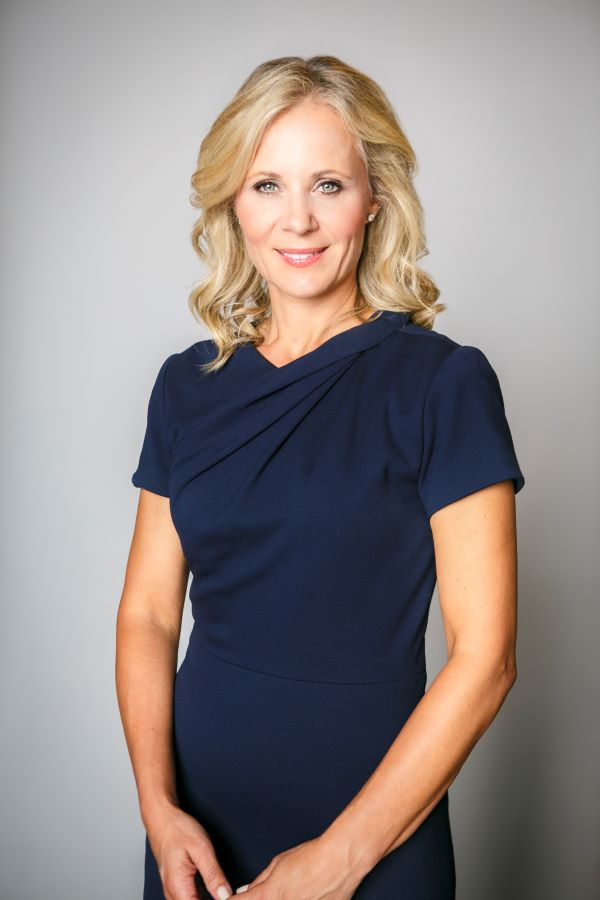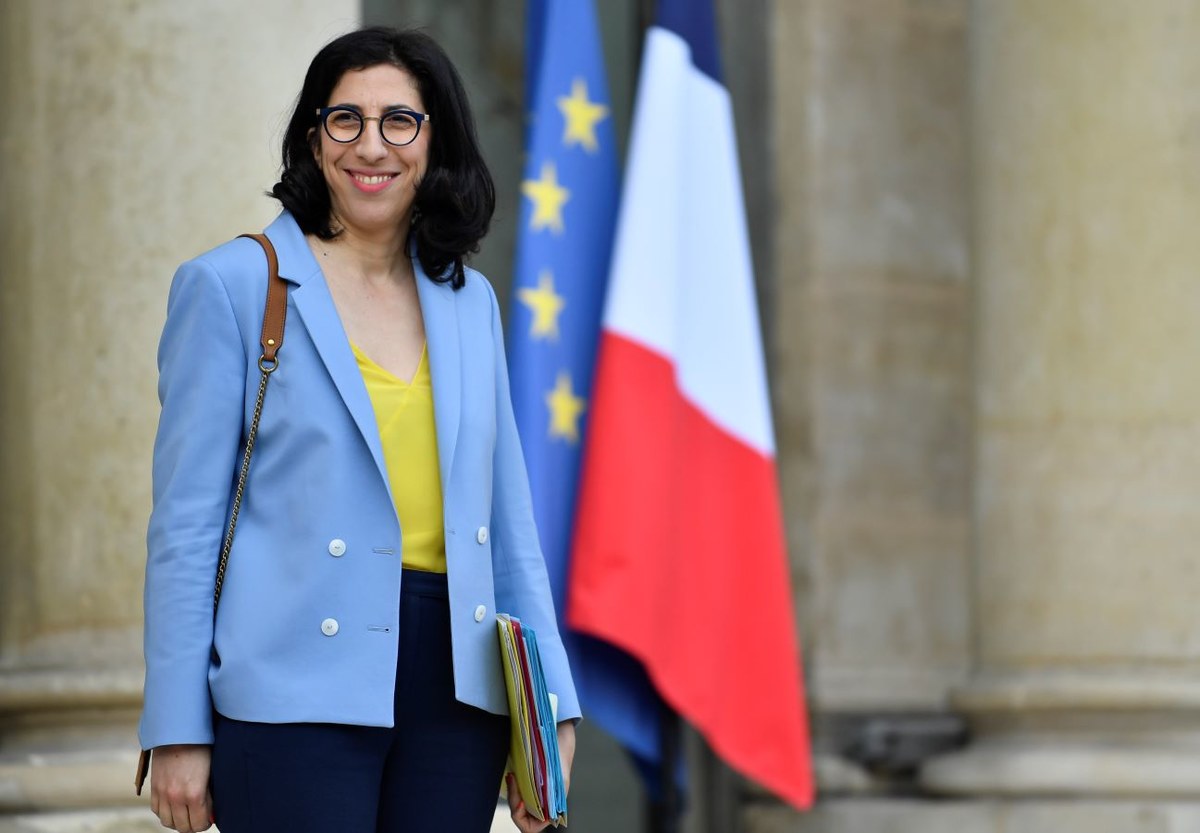Founder of the Antiquities Coalition: “It’s not just about stealing your history”
LONDON: When Kim Kardashian attended the Met Gala in 2018, little did she know that she was about to launch a global investigation into illegal antiquities trafficking. Her photo next to a golden sarcophagus of a high-ranking Egyptian priest, Nedjem ankh, went viral and quickly attracted the attention of the Manhattan district attorney’s office. An investigation into its provenance followed, prompting prosecutors to call out the 2011 Egyptian revolution.
During the unrest, the sarcophagus was looted from Minya in Upper Egypt, smuggled to Paris, restored and eventually sold to the Metropolitan Museum of Art in New York for $4 million.

One of a nearly identical pair of ivory carvings known as the Lion of Nimrod, another artifact on the Antiquities Alliance’s most wanted list. (supplied)
“The Met purchased the piece at a time when there were reports of looting in Egypt after the 2011 revolution,” says Deborah Lear, president and founder of the Antiquities Alliance. “If they had simply googled the source records, they would have known it was fake, because the export license is dated 1971 and bears the stamp ‘Arab Republic of Egypt,’ which was not the name of the country at the time.”
The coffin was returned to Egypt in February 2019.

Director of the Louvre Jean-Luc Martinez in 2020 (AFP)
The revelation of the mystery surrounding the golden sarcophagus sparked a global investigation into the stolen antiquities trade. In May last year, Jean-Luc Martinez, former president and director of the Louvre Museum in Paris, was charged with complicity in fraud and money laundering. All charges relate to trafficking in antiquities from Egypt and were upheld by a French appeals court in February. Martinez denies any wrongdoing.
Among the deals under investigation is the acquisition of a stone panel depicting Pharaoh Tutankhamun, which was purchased for the Louvre Abu Dhabi in 2016. It is believed that this panel was sold to the museum by the Lebanese-German exhibition maker and art dealer, Robin Dib, and the French antiquities expert Christophe Konecki. Both were involved in the sale of the golden sarcophagus to The Met in 2017.

Deborah Lear, President and Founder, Antiquities Alliance. (supplied)
According to Lehr, this is just the tip of the iceberg, but gauging the true scale of the problem is difficult. The Manhattan District Attorney’s Office’s Antiquities Trafficking Unit, which was established in 2017, estimates the total value of its seizures to date is more than $375 million. These seizures include 180 artifacts handed over by billionaire Michael Steinhardt in 2021, worth $70 million, including artifacts stolen from Lebanon, Egypt and Iraq. Steinhardt owned a bull’s head from the Phoenician Temple of Eshmun in Sidon, which had been plucked from a facility in Byblos during the Lebanese Civil War. The chair ended up at The Met and was returned to Lebanon despite legal challenges from its owners, Lynda and William Bierewaltes, in 2017.
“This is just one market,” says Lear, who is also CEO of Edelman Global Advisory and vice chair of the board of directors of the Paulson Institute. For many years it was seen as a victimless crime by big galleries, lots of auction houses, and dealers. It was seen as, “No one will notice, and if they do, the price of doing business is only to return it.”

Alabaster stone relief from the Awwam Temple in Yemen, one of the most sought-after items in air conditioning. (supplied)
The opposite is actually true. Not only does antiquities theft deny communities future economic opportunities around archaeological sites, it helps fund entities like ISIS. “They had a Ministry of Extraction,” Lear explains. One department focused on oil and another on archeology because they realized it was a very profitable business. They even had their own auction house.” Because of its impact on national economies and global security, the Antiquities Alliance says a whole-of-government approach, as well as international cooperation, is necessary to combat cultural blackmail.
“No one listens to the Minister of Antiquities,” says Lear. “They’re the weakest in the system. So if you want to address anything, you have to go to the State Department or the Defense Department or the Treasury. You have to put it on their radar. Once it’s there, it gives us an opportunity to start putting in legal structures and raising awareness. And we found it as soon as we can.” From talking to these people and explaining to them that it’s not just about stealing your history, it’s about economic opportunity, it’s about some of the disruptions that you see, and then we got attention.Then we started working with them and changing the legal structure, so at least if a crime was committed, they could address it. “.

French Minister of Culture, Rima Abdel Malek. (AFP)
Formerly a US government negotiator on intellectual property rights with China, Lehr’s interest in the illegal trade in antiquities was sparked by his blending of history and foreign policy. While working as a negotiator, she and her team began painstakingly breaking down smuggling patterns. They found that the networks often began with local organized crime syndicates operating from lists provided by merchants, who in turn collaborated with academics who knew what antiquities could be found in a particular area.
“They’re smuggled out, so there are professional smugglers who will one day smuggle drugs, one day women, one day cigarettes, one day antiquities,” says Lear. “Often this process is very similar and then specialized at the medium.” Brokers such as Douglas Latchford, a British art dealer who was charged with trafficking looting of Cambodian antiquities and forging documents in 2019. Although charges of fraud, smuggling and conspiracy were brought against him in New York, they were expelled after his death in 2020. In June this year, Latchford’s daughter agreed to $12 million seized from the sale of stolen artifacts. She had previously returned 125 golden statues and relics to Cambodia.
“We’re not opposed to the antiquities trade, we’re just opposed to the trade in illegal objects,” says Lear, who formed the Antiquities Coalition in 2011 as a nongovernmental organization dedicated to protecting world heritage from cultural extortion. “And sometimes it’s very hard to tell the difference. So we try to work with institutions to encourage certain practices, including auction houses, dealers and museums to have rigorous sourcing units.” In the wake of the scandal surrounding the Louvre Museum, the French Minister of Culture, Rima Abdel Malek, announced the formation of a committee to look into the legal framework and procedures related to the acquisition of works. In May, The Met announced that it would be hiring a dedicated sourcing team.
Lear also hopes to apply harsher penalties to those found guilty of cultural extortion. In the Hobby Lobby scandal case, in which representatives of a US-based arts and crafts retailer knowingly falsified records for importing Iraqi artifacts, a $3 million settlement was agreed. In return, Steinhart, now 82, simply agreed to a lifetime ban on the acquisition of antiquities.
“Hopefully we’ll see some jail time in the near future because that’s really what you should have as a deterrent,” says Lear.
Two antiquities from the region on the coalition’s “wanted” list are the Lion of Nimrud, which was looted from the Iraqi National Museum in 2003, and the alabaster relief from the Awam Temple in Yemen. The Coalition also works with governments across the Arab world to effect real change. It pushed for the signing of a memorandum of understanding between the United States and Egypt in 2016, restricting the import of certain antiquities, and is working with the culture ministries of Saudi Arabia and the United Arab Emirates to raise awareness — Al-Ula is, after all, one of the world’s largest archaeological sites, and it was Dubai is (at least historically) a transit point for the illegal antiquities trade. Saudi Arabia also seeks to play a leading role in combating cultural extortion and in developing and training Arab archaeologists.
“While I don’t think Saudi Arabia or the UAE consider they have a looting issue, they do have a heritage that needs to be protected and being leaders on that issue is very important,” says Lear. “The steps they take around collecting them, how they treat fossils, are very important in setting an example, not just in the region, but globally.”
#Reality #star #Irene #Lecce #hits #red #carpet #York #Elie #Saab










